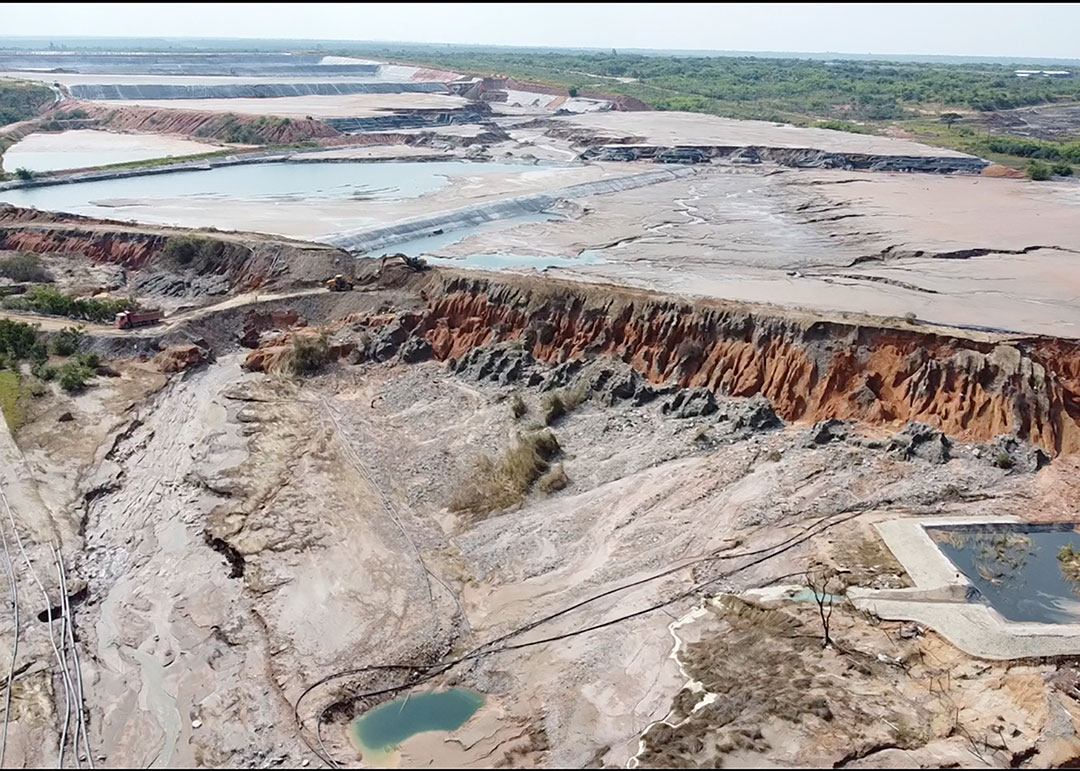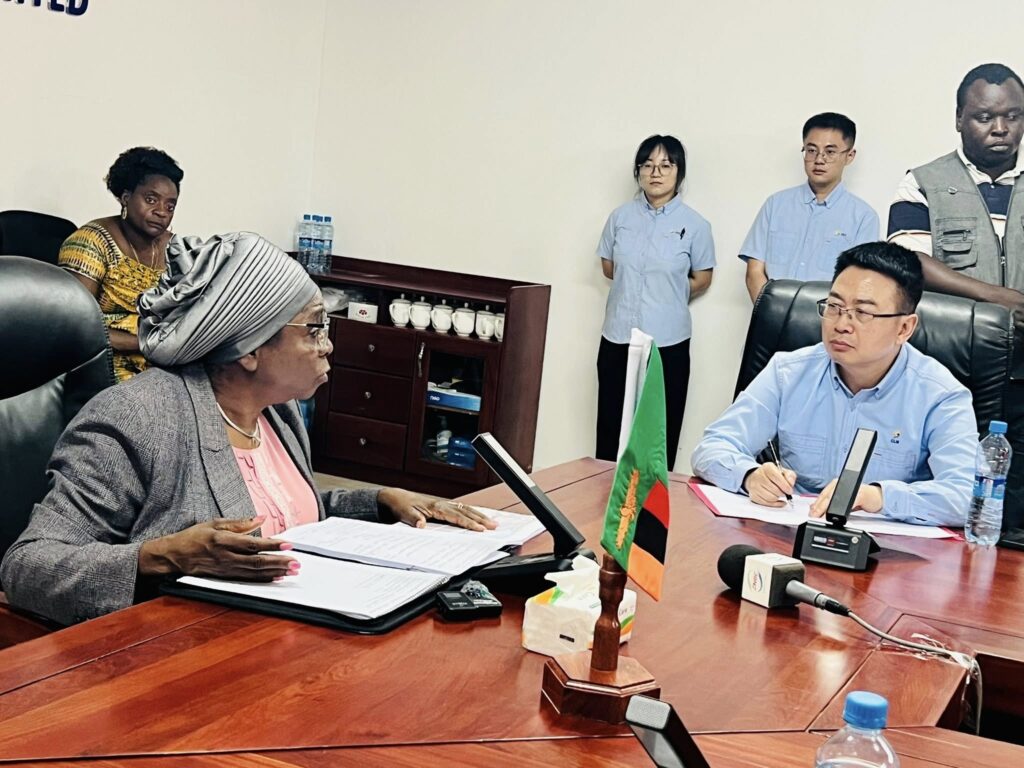More than seven months after a toxic waste spill at a Chinese-owned mine caused one of the worst environmental disasters in its history, Zambia still is trying to determine the full extent of the damage and the response needed.
Attempts to downplay the catastrophe by Sino-Metals Leach copper mine, which is owned by the state-run China Nonferrous Metals Industry Group, have sparked outrage and, more recently, a forceful government response.
Fifty million liters of toxic mining waste poured into the Mwambashi River, just outside of the mining town of Chambishi on February 18 when a substandard earthen wall of Sino-Metal’s waste reservoir collapsed. Officials reported signs of pollution more than 100 kilometers downstream on the Kafue River, the country’s most vital waterway.
Zambian Vice President Mutale Nalumango visited the mine and met with Sino-Metals officials on September 10. She acknowledged the receipt and allocation of $580,000 to compensate the victims but said the payment “may not be all.”

THE ASSOCIATED PRESS
“This is a step in the right direction,” she said in a statement posted to social media. “However, compensation must be guided by thorough and independent assessment.”
In April, Sino-Metals hired South African pollution control company Drizit Environmental to assess the damage. When Drizit notified the Zambian government and Sino-Metals of its findings in June, Sino-Metals fired the company the day before its final report was due.
“While Sino Metals initially reported that only 50,000 metric tons of waste material had spilled, Drizit’s fieldwork indicated that over 1.5 million metric tons were released, with approximately 900,000 cubic meters of toxic tailings still present in the environment,” the company said in an August 29 statement. “These materials were found to contain dangerous levels of cyanide, arsenic, copper, zinc, lead, chromium, cadmium and other pollutants posing significant long-term health risks, including organ damage, birth defects and cancer.”
Two organizations representing victims have reported that they are seeking a combined settlement of $420 million in emergency compensation from Sino-Metals and nearly $90 billion for long-term cleanup and restoration.
In July, the Zambian government ordered Sino-Metals to provide interim compensation to 454 farmers for damage to livestock, land and crops. In late July, Sino-Metals began paying individuals between $17 and $2,000, amounts far below the cost of the damage, local civil society workers told environmental organization Inside Climate News (ICN).
Sino-Metals required locals to sign legal documents agreeing that the payment was made “as full and final settlement of all claims arising from any damage, injury or inconvenience,” according to ICN.
The lawyer who represents 47 households that demanded $220 million for relocation costs, independent medical testing and treatment, cried foul: “Most of them did not know the implications of what they were signing,” Malisa Batakathi told ICN.
About 12 million Zambians, 60% of the country’s population, live in the Kafue River basin and depend on it as a water source for fishing, irrigation and industry. The river supplies drinking water to about 5 million people, including residents of the capital, Lusaka.
In recent months, two embassies issued travel advisories regarding water and air pollution. A water quality analysis published in July by the Embassy of Finland confirmed the presence of 24 heavy metals in the Mwambashi Stream and Kafue River.
Independent tests conducted at three locations, including one nearly 100 kilometers downstream on the Kafue River near Mpongwe town, revealed dangerously high concentrations of heavy metals, 16 of which exceeded World Health Organization safety thresholds.
“Unless the remaining toxic tailings are removed and safely contained in a properly engineered facility, downstream communities will remain at risk for decades,” Drizit said.
Nalumango struck an ominous note when she met with Sino-Metals officials and warned them that the process of investigating the environmental damage and its toll on Zambian victims is incomplete, and the matters of remediation and retribution remain to be determined.
“When there is an outcry from our people, their safety must come first. That is non-negotiable,” she said. “If the damage to the land and livelihoods proves to be more extensive or long-lasting than initially understood, then further compensation will be necessary, and it will be pursued.”

